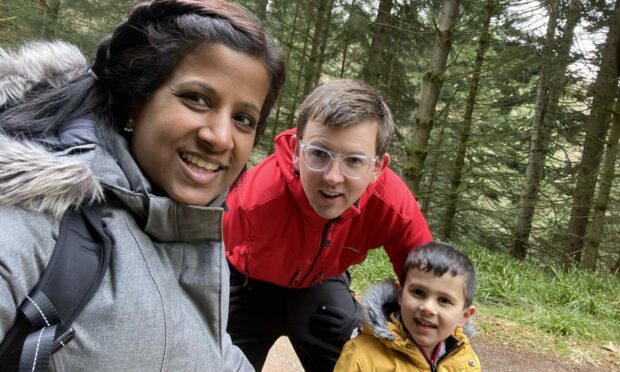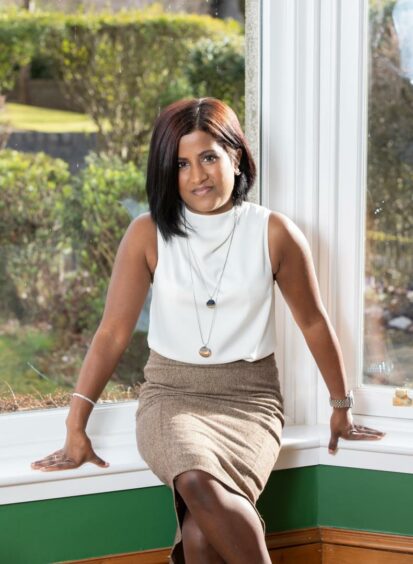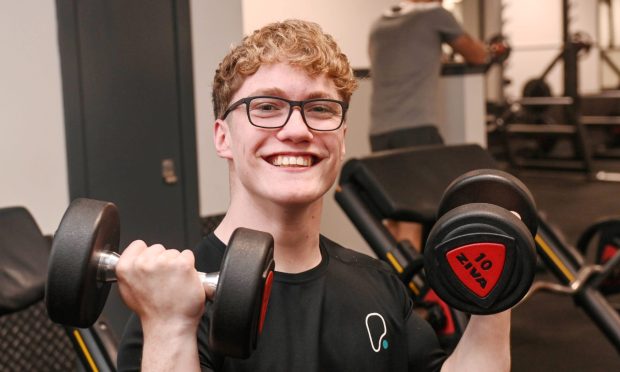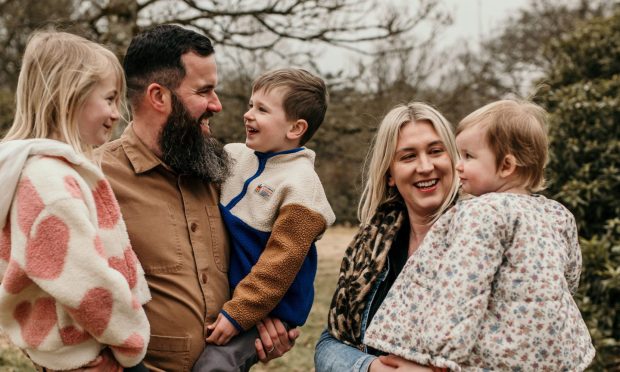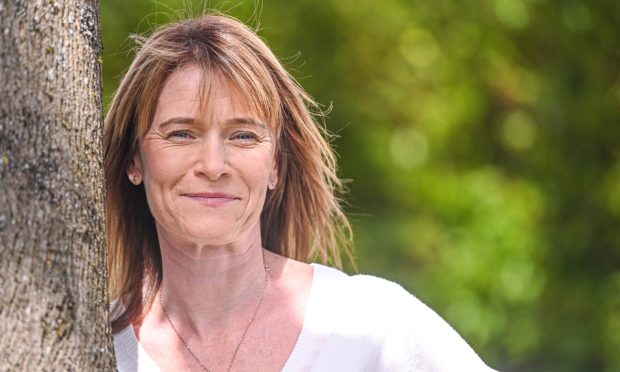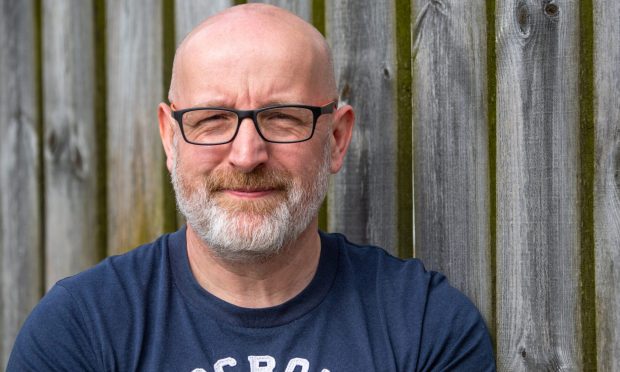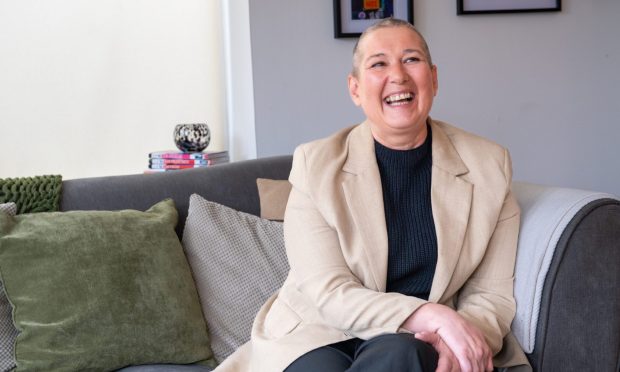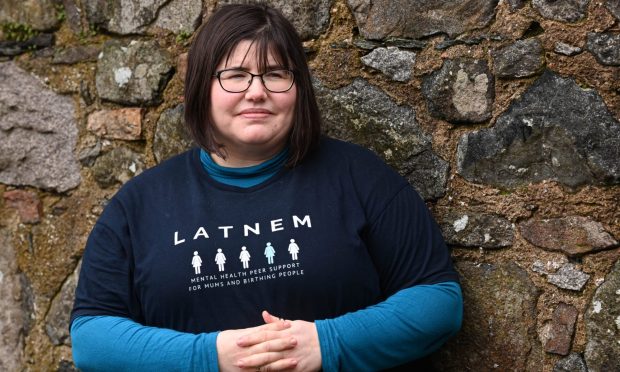An Aberdeen doctor whose year-long chest infections turned out to be lung cancer is urging others to be vigilant of the warning signs.
Ruthra Coventry, a consultant anaesthetist at Aberdeen Royal Infirmary, was diagnosed with lung cancer in 2018 and needed surgery to remove part of her organ.
Ever since, the 41-year-old has been vocal about getting checked for these “less survivable” cancers that do not have regular screening programmes.
Early diagnosis is particularly crucial for the likes of lung, liver, brain and stomach cancer, as the sooner it can be caught, the sooner it can be treated.
‘I didn’t expect it to be cancer’
Mum-of-one Ruthra first noticed something was off when she had about a year of frequent chest infections.
Initially, she believed she was picking up on the bugs her son, then three-years-old, was bringing home from nursery
Then a particularly bad infection in summer 2018 left her with breathing difficulties.
Ruthra, who was 38 at the time of her diagnosis, said: “I was at work and I couldn’t take deep breaths in because it was so painful in my chest.
“I actually ended up having to go down to A&E where they did a chest X-ray and, again, they diagnosed me with another chest infection.”
Ruthra was sent home with antibiotics but, over the next few days while she recovered, she coughed up a small amount of blood.
“It wasn’t necessarily the blood that worried me, it was more the fact that it was the middle of the summer I had another bad chest infection,” she explained.
“And because this kept on happening, I wanted to find out what was going on. I didn’t really expect it to be cancer.”
Early cancer diagnosis is crucial
She returned to her GP, who referred her to the hospital for a high-resolution CT scan.
A couple of weeks later, the physician phoned Ruthra to inform her of a “small mass” in her upper-right lung.
Because of where it was located, and the health problems it was causing, her surgeon recommended taking part of her lung out.
It wasn’t until after her surgery that they confirmed it was a non-small cell cancer – the most common lung cancer.
“Obviously, there are implications of ‘I’m going to have to make sure that I keep on top of this’, in case it comes back,” she said.
“That’s always a sort of worry in the back of my mind.
“But luckily all I’ve needed so far treatment-wise was the surgery.”
Ruthra credits this to having caught the cancer early.
Cancer isn’t a ‘cliche’ – it can affect anyone
Now, she is urging anyone with concerns about their health to seek medical advice – warning that cancer isn’t a “cliche” that only affects older people and smokers.
“If you have any concerns, don’t ignore it,” she added.
“It can affect anyone. And if you get it seen early, there’s so much more that can be done than if you ignore it until it spreads.
“Don’t let Covid put you off. You need to be persistent.”
Anna Jewell, chairwoman of the Less Survivable Cancers Taskforce (LSCT), said the public’s awareness of the symptoms of these cancers is still “dangerously low”.
As a result, they can lead to late diagnoses and a “tragic reduction” in life expectancy.
“The key message is to seek medical help swiftly if you notice anything unusual for you,” she said.
